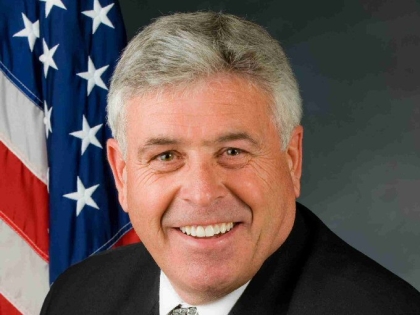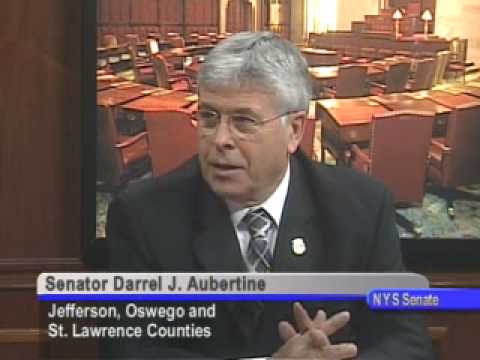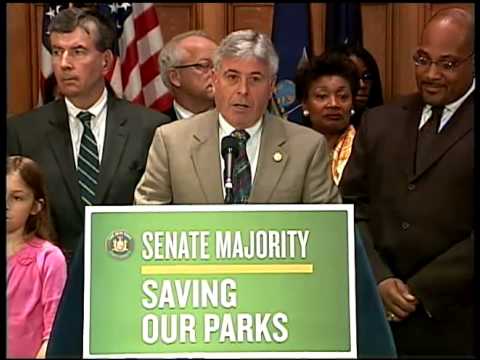
Sen. Aubertine Proposes Plan For Property Tax Relief
Proposed legislation caps property tax increases, create circuit breaker and reduce mandates
WATERTOWN (July 24, 2008)—State Sen. Darrel J. Aubertine (D-Cape Vincent) today announced his sponsorship of new property tax reform legislation that will cap local tax levies, rein in unfunded mandates and create a circuit breaker to bring immediate relief for those least able to afford these taxes. The Senator also urged Senate leaders to reconvene in the coming weeks to adopt a solution to the problem impacting families across Central and Northern New York.
"When I meet with people across Oswego, Jefferson and St. Lawrence Counties, to a person people agree with me when I say that property taxes are too high. This expense, as much as any, is hurting many in their ability to make ends meet," said Sen. Aubertine. "The challenge is to address this burden, while protecting the resources we need for our schools and quality education for our children. The plan I am sponsoring in the senate does just that."
The bill being proposed by Sen. Aubertine, along with Senator David J. Valesky and others, would impose a real property tax levy cap for all school districts other than the "Big 5" school districts such as Syracuse and Buffalo, whose budgets are partly dependent their city budgets. Under the tax levy cap, a school district's tax levy limit, excluding the taxes necessary to support the local share of capital expenditures, transportation and special education costs, could increase by up to 4 percent or 120 percent of the annual increase in the consumer price index (CPI), whichever is less. Greater increases would only be possible with a 55 percent override vote. School district voters could also choose to impose a stricter tax levy limits with a 60 percent override requirement.
"This proposal, I believe, would reduce the local tax burden, while at the same time giving communities the flexibility to address their educational needs," said Sen. Aubertine.
The proposal also includes a circuit breaker tax credit that would provide tax relief to households who pay a high percentage of their income on local property taxes. In the plan, a family making less than $90,000 would get a tax credit for any amount they pay in property taxes, if it is more than 6% of their income. And families making more than $90,000 up to $200,000 would get a tax credit for anything paid more than 7% to 8%. That means a family making $50,000, would get a tax credit for any amount over $3,000 in property taxes.
"This circuit breaker concept is critical, because while a tax cap will work to reduce tax growth in the future, it is the circuit breaker that will bring relief today," said Sen. Aubertine. "This circuit breaker will be particularly helpful to people on fixed income, or the many families who have endured stagnant wage growth as property taxes have continued to rise."
Finally, this comprehensive bill includes relief from ever-cumbersome state mandates. This will ensure that the tax levy cap will not combine with state requirements to deprive schools of the flexibility necessary to provide quality education to their students. Among other details this legislation will roll back many existing paperwork and reporting mandates and place strict limits on the imposition of any new state-initiated mandates.
"Mandate relief is a vital part of any property tax plan," said Sen. Aubertine. "Without this kind of relief, schools will be forced to do more and more, with less and less. That is not the way to treat our educational system, which is a critical part of economic development."
The legislation also includes measures that will encourage cooperation among school districts and consolidation of service, along a model similar to BOCES.
"We are proposing this legislation to address the challenge, and we are calling on State Senate leadership to take these problems and these solutions more seriously," said Sen. Aubertine. "I am calling on Senate leadership to go back to Albany in the coming weeks to address this issue and consider this legislation. If we work together, we can bring about the change New York needs."


